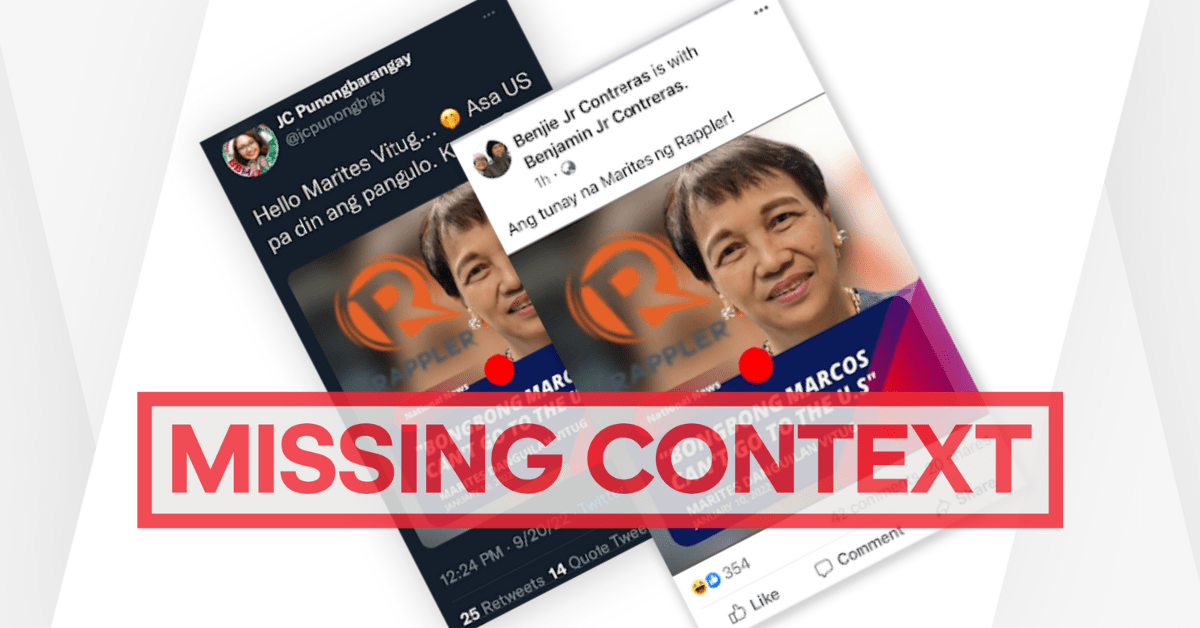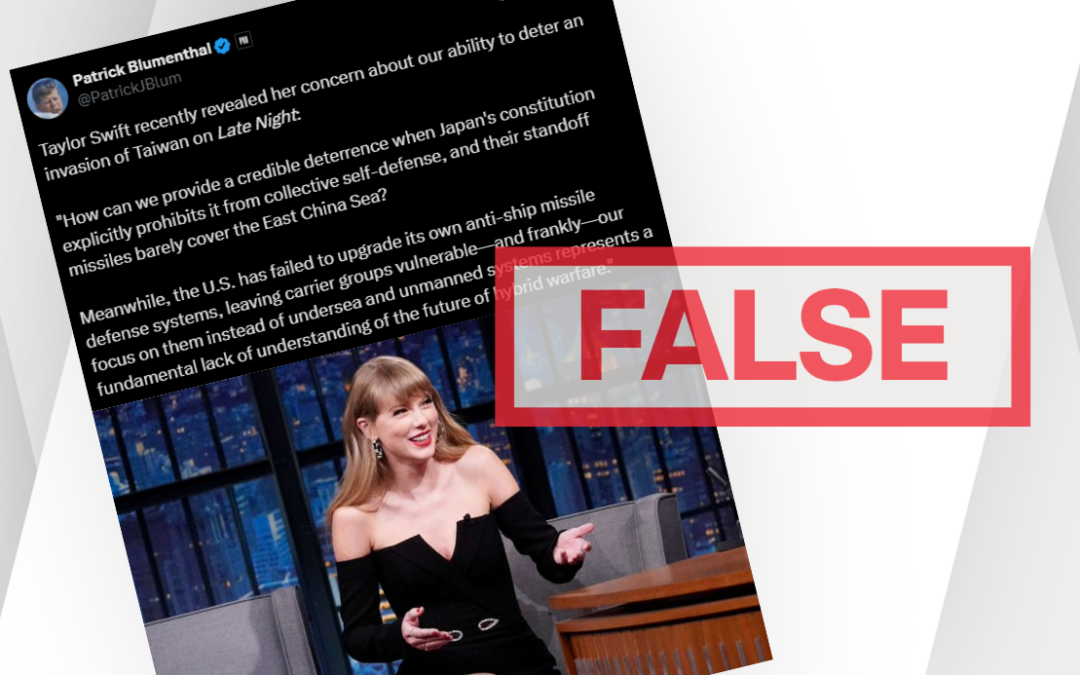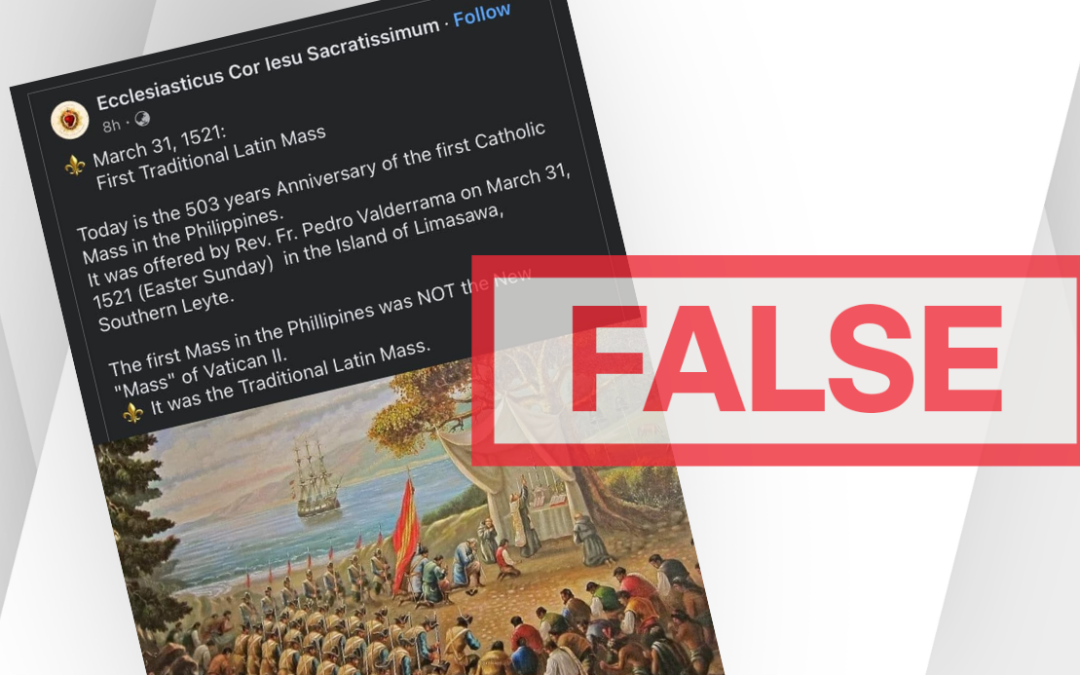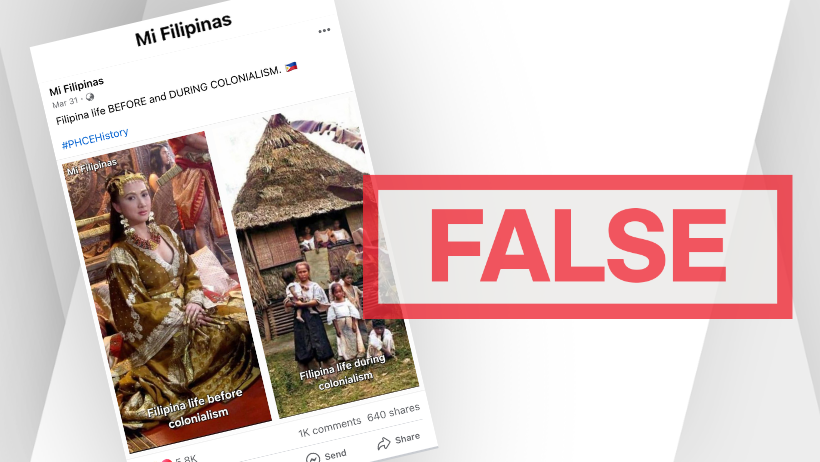
Vitug’s article was written was eight months ago; Marcos is now president, and heads of state enjoy diplomatic immunity under international law.

CLAIM: Veteran journalist Marites Vitug erred when she wrote in January 2022 that Ferdinand “Bongbong” Marcos Jr. couldn’t go to the United States because he would be arrested by authorities.
RATING: MISSING CONTEXT
Pro-Marcos social media users left out crucial context when they revived a statement by veteran journalist Marites Vitug in January 2022 that Ferdinand “Bongbong” Marcos Jr. couldn’t go to the United States because he would be arrested by authorities.
Sans any context, Twitter user @jcpunongbrgy heckled Vitug on Sept. 20, 2022, pointing out that President Marcos was already in the US for a visit.
“Hello Marites Vitug… Asa US pa din ang pangulo. Kaw ba? (Hello Marites Vitug. The president is still in the US. How about you?)”
The tweet has so far gained more than 20 retweets and a hundred likes but has the potential to extend its reach given the hostility of Marcos supporters to the news media. On Facebook, it was shared by user Benjie Contreras Jr., and has gained more than 350 engagements, 42 comments, and 20 shares.
In response, Vitug posted a key term on her Facebook page: diplomatic immunity.
Vitug did not err when she wrote in January 2022 that Marcos risked arrest in the US over a contempt case involving a human rights class suit.
That was eight months ago; Marcos is now president, and heads of state enjoy diplomatic immunity under international law.
The 1969 UN Convention on Special Missions states that: “The Head of the sending State, when he leads a special mission, shall enjoy in the receiving State or in a third State the facilities, privileges and immunities accorded by international law to Heads of State on an official visit.”
The convention was adopted by the UN General Assembly of the United Nations on Dec. 8, 1969. It entered into force on June 21, 1985.
This fact-check was produced by PressOne.PH as part of a fact-checking grant from the Philippine Fact-Checker Incubator (PFCI) Project. The PFCI supports news organizations to allow them to meet global fact-checking standards under the International Fact-Checking Network’s Code of Principles.
PressOne.PH believes that fact-checking is essential to combating misinformation and disinformation, and in informing and educating citizens and voters. Read more of PressOne.PH’s Fact-Checking Policy by clicking here.
The public is welcome to send feedback or requests for fact-checks at factcheck@pressone.ph.


FACT-CHECK: Taylor Swift did not make any comment about US ability to stop war in Taiwan
An X user made the false claim that Taylor Swift had commented about the United States’ naval capability to deter an invasion of Taiwan.

FACT-CHECK: Facebook post uses wrong painting to depict first Mass in PH
A Facebook post used the wrong painting to depict what it described as the first Mass in the Philippines.

FACT-CHECK: Actress’ photo used in false comparison of Filipina life before, during colonialism
The photo in question is that of the actress Ayen Munji-Laurel, who portrayed the role of ‘Hara Lingayan’ in the primetime historical fiction ‘Amaya’ that aired from 2011 to 2012 on the GMA Network.